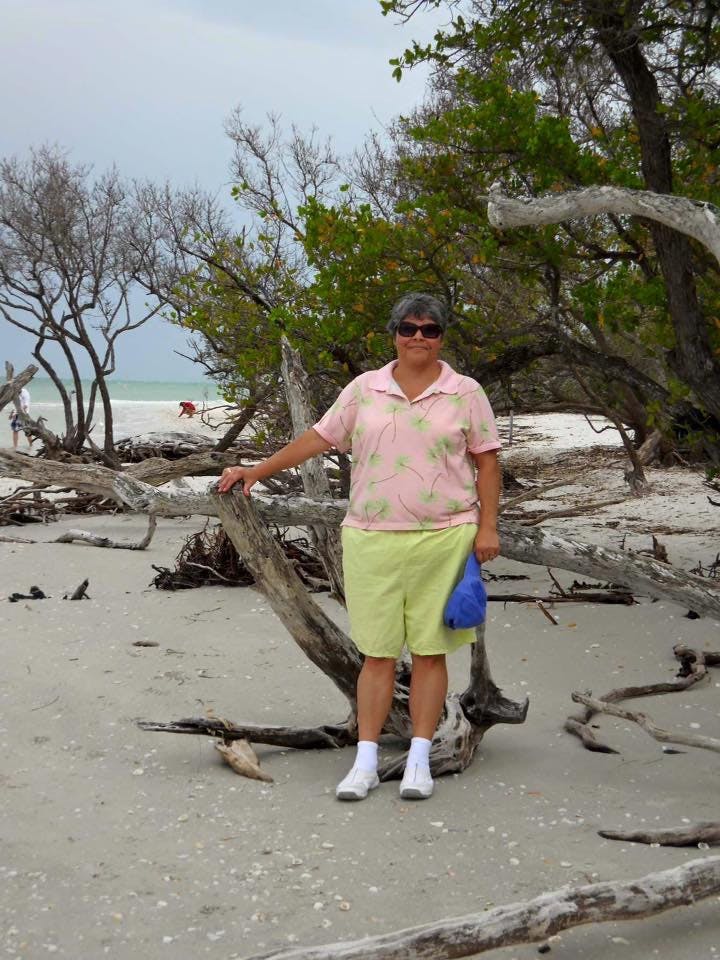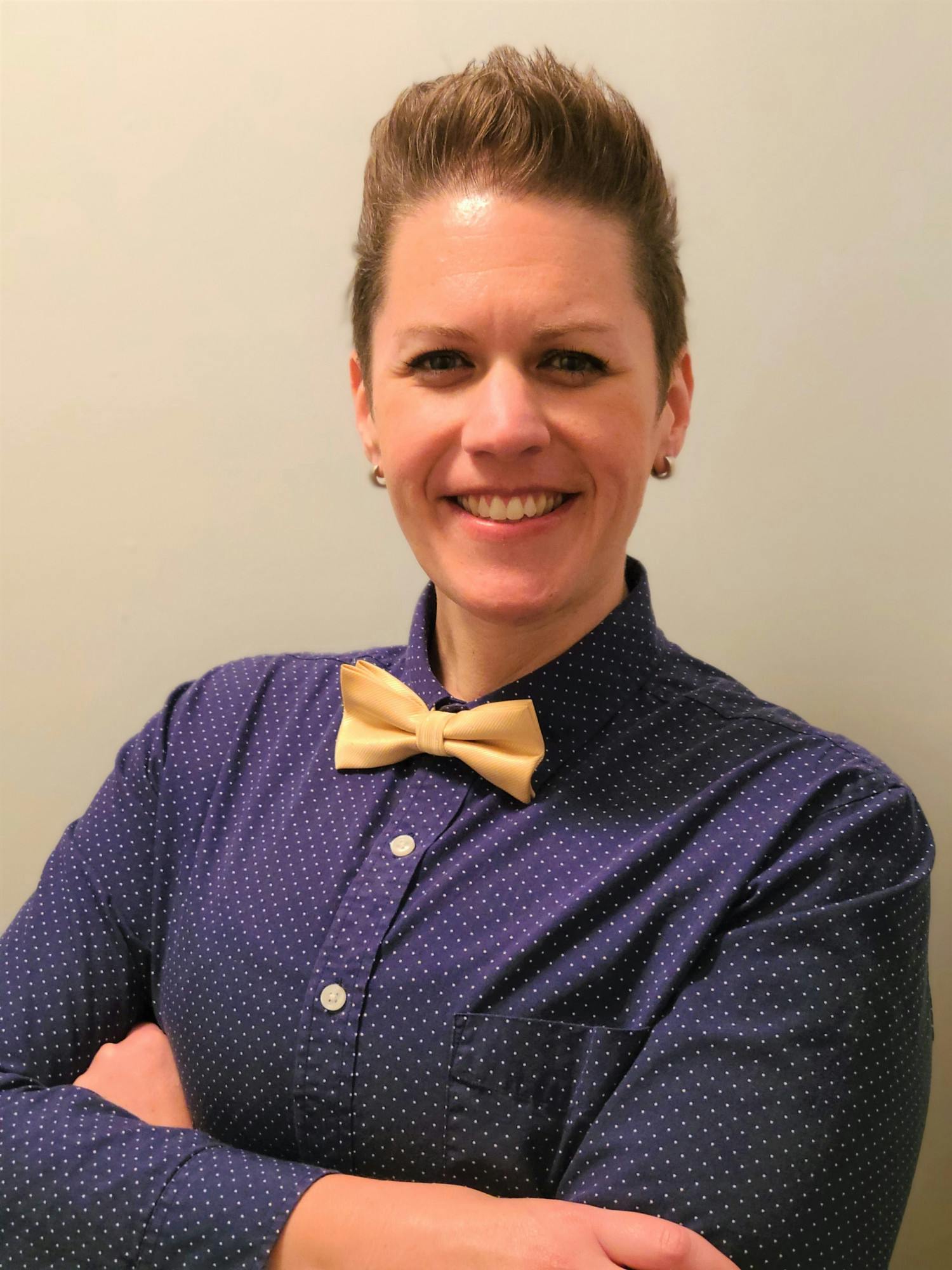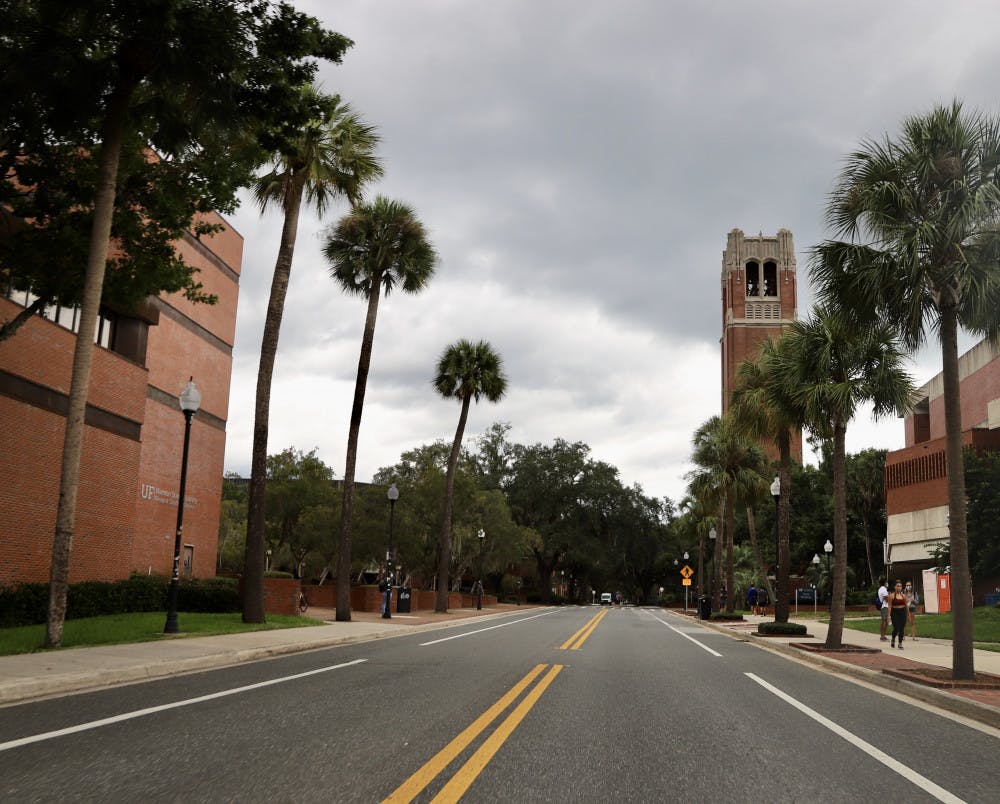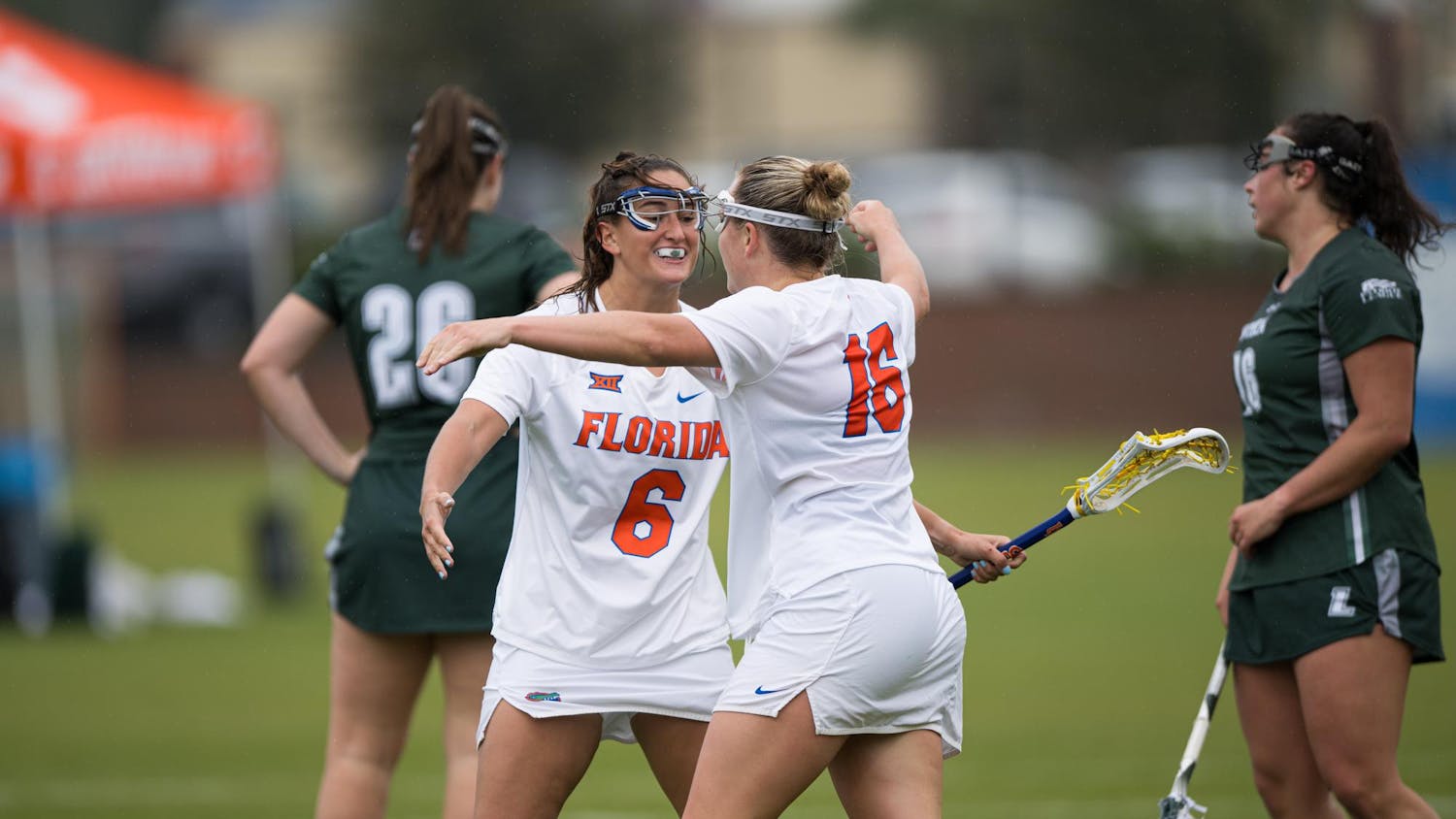In her 14-year career at UF, only the nicest things could be said about Maria Gavidia.
Gavidia, a program coordinator within UF’s Clinical and Translational Science Institute (CTSI), was well liked among her co-workers and provided “stability to the programs with several leaders and competing responsibilities,” according to evaluations delivered throughout her career obtained by The Alligator through public records requests.
So it came as a surprise when Gavidia, who was battling kidney issues and had received an American with Disabilities Act accommodation due to COVID-19, was asked to consider leaving the university in early February by her boss, Thomas Pearson, who is set to retire in July.
Over Zoom, Pearson broke the news to Gavidia: She should step aside so his replacement wouldn’t be “saddled” with her ADA accommodation, according to Gavidia’s wife, Diane Gavidia, who overheard the conversation.
“He didn’t ask her if she needed to take some sick time,” Diane said. “He didn’t ask her what was going on.”
Gavidia’s last day before taking medical leave was Feb. 12. She died on Feb. 27 from her kidney infection. She was 62.
The Alligator found three cases of current and former UF employees with medical issues facing alleged resistance from their supervisors since 2019. These employees, who were not tenured, faced two propositions: medical leave or unemployment.
It comes as the university concludes its first full school year during the COVID-19 pandemic, one that has seen almost 10,000 UF students, faculty and staff contract the virus. At least one UF professor has died from COVID-19.
All three cases dealt with one of two employee health options: the American with Disabilities Act (ADA), which requires employers to provide reasonable accommodations for those with health conditions; or the Family and Medical Leave Act (FMLA), which allows employees to take up to 12 weeks of unpaid leave to, among other things, address health conditions.
UF approved 78 faculty members to teach remotely out of 222 that applied, according to COVID-19 ADA page. The rest received “enhanced classroom safeguards,” which include N-95 masks and face shields.
In these cases, UF supervisors either prevented or retaliated against employees who sought these protections. Supervisors’ actions left the employees either unable to manage their health conditions properly or continue in their positions, with some feeling like they’re better off leaving the university.
UF spokeswoman Hessy Fernandez declined to comment on the employee allegations in an emailed statement, citing ongoing litigation and grievance. She did reaffirm UF’s commitment to employees’ health options.
“We are committed to a safe and respectful workplace environment, where faculty and staff are valued and treated fairly,” Fernandez wrote.
Paul Ortiz, a UF history professor and the president of its faculty union, said employees should have a right to pursue any health options guaranteed by law.
“It’s not an option to provide a safe workplace,” Ortiz said. “If we’re a progressive institution, we have to be respecting people’s health.”
Maria Gavidia

Years before her time at UF abruptly ended, Gavidia was eager to work.
She came to UF in 2007, working in the International Center as a study abroad adviser. She quickly rose through the ranks. Gavidia joined UF’s CTSI in 2016 as an academic program specialist, working under Pearson, a UF professor of epidemiology. The position required her to manage all research grant applications submitted to the National Institutes of Health by clinicians and post-doctoral students.
“They had a good working relationship,” her wife, Diane, said. “No problems at all.”
But as Gavidia managed grant applications at CTSI, she faced her own issues at home.
Gavidia had been suffering from kidney issues and diabetes, which reached a head in 2019 when her kidney problems worsened.
Last year, she was also diagnosed with Sjogren’s Syndrome, an autoimmune disease that dries out eyes and salivary glands and left Gavidia hardly able to walk or speak.
Then the COVID-19 pandemic hit.
After five months of working at home, she applied for an ADA accommodation for the Fall semester due to her ongoing health issues. That accommodation allowed her to come into the office only on Fridays to minimize the risk of COVID-19, given that no one else would be there.
Her work with the grants continued into the winter, driving 25 minutes from her Alachua home to Pearson’s Gainesville house to transport the applications while on dialysis.
“She was very accommodating with whatever he asked her,” Diane said. “It was becoming difficult with her with the pain.”
Gavidia underwent several pain management options — medical marijuana, procedures on her back — but none seemed to work. Knowing that little could be done to ease her condition, Gavidia stopped her dialysis in mid-December and started hospice care in January, though she didn’t tell Pearson, Diane said.
Eventually, her health conditions began to impact her work. In her final quarterly check-in, Pearson noted some inconsistencies in Gavidia’s performance, including her handling of this year’s grant applications.
In her rebuttal, Gavidia wrote that there were no prior comments on her performance, with some of her issues due to medication she said her body was still adjusting to.
It led to that February Zoom call, where Pearson noted that he was leaving in July and wanted to make things easier for his successor. He recommended Maria step aside, saying he didn’t want his replacement to be “saddled” with her ADA request, according to Diane who said she was in the room and overheard the conversation.
The request caught Gavidia off guard, Diane said.
“She just said, ‘I’ve never had a bad evaluation, I’ve never had any complaints,’” Diane said.
Thomas Pearson, Gavidia’s supervisor, could not be reached for comment after two phone calls to his cell phone and an email.
Gavidia sought out human resources. She reached out to CTSI’s HR coordinator, and told her about the conversation. HR encouraged Gavidia to file for protection under the Family Medical and Leave Act, Diane said, which would allow Gavidia to keep her health insurance, though she wouldn’t be paid.
She also told some of her colleagues about the conversation, her wife said, including Susan Gardner, an assistant to Wayne McCormack, a colleague of Gavidia.
Gardner confirmed that Gavidia reached out to her. While she could not confirm the use of the word “saddle,” she said Gavidia “said things along those lines.”
As Gavidia stayed home, she began to lose mobility. On Feb. 25, the pain became unmanageable, leaving her bedridden. She died two days later.
Now, almost two months after her wife’s death, Diane Gavidia hopes those involved in Gavidia’s departure won’t interfere with future employees’ health options.
“Supervisors need to understand what they can and cannot do about somebody with ADA accommodations,” Diane said.
Annamarie Sisson

As a lecturer with UF’s Tourism, Hospitality and Event Management department, Annamarie Sisson looked forward to being the sole instructor of one of the largest classes in the department, developing an online format of the college’s bachelor’s program and having the chance to work for one of the country’s top public universities.
“I thought it was going to be fantastic working here,” Sisson said. “I really thought it was going to be something unique.”
Now Sisson, who was denied an ADA accommodation despite being medically overweight, wants to leave the university. She filed a formal complaint with UF in December. The case is in its final stages, she said.
The Centers for Disease Control and Prevention classifies overweight people as having a higher risk of complications due to COVID-19.
“I don’t want to work for an institution who doesn’t value their staff and their faculty,” she said.
Sisson, 37, started at UF during the Fall of 2019 and began training to launch the department’s online bachelor’s program. That meant heading to East Campus to record lectures — all while trying to build lessons for her in-person classes. Sisson taught about 320 total students a semester.
When classes moved online because of COVID-19 pandemic, Sisson kept her guard up. She either picked up her groceries or had them delivered. She halted her travel plans. When her father died in December, she chose not to drive up to Michigan for his funeral, fearing the risk.
As the university unveiled plans for more in-person courses in the Spring, her fear escalated.
“When I first got the news, I thought I would just give it time,” Sisson said. “‘It’ll change. It won’t ever go through.’”
But as time went on and classes were finalized, Sisson realized the university’s stance wasn’t going to change. She filed an ADA accommodation to teach from home for the Spring semester.
“I felt good that there were processes in place for potential coverage of or potential protection,” Sisson said. “I didn’t think it was going to be such an uphill battle.”
She said her initial accommodation request to teach remote was denied on Nov. 2, with UF instead saying she’d get “enhanced classroom safeguards.” It was denied again on appeal.
Sisson filed a grievance on Dec. 18, but still tried to push her college’s administration to make an exception. It offered her a final option in January: take 12 weeks off through the Family and Medical Leave Act.
While Sisson said she begrudgingly applied and was approved, she ultimately opted against taking the leave.
“This isn’t really a solution,” Sisson said. “I’m a teacher. My job is to teach. ”
She continued to advocate to change her situation, but as she did, Sisson said she noticed signs of what she believed was retaliation.
In August, she saw a promotion posted for an assistant professor position, one she felt qualified for, given her three degrees and seven years of teaching experience. She reached out to her boss, Rachel Fu, to ask about it. Fu told her she should apply – but wouldn’t get hired for it.
She applied anyway and received an interview offer within eight hours of the interview itself. She never got a call for a second interview, she said.
In December, Sisson was awarded the Faculty Advisor of the Year award for the College of Health and Human Performance, which would be submitted for universitywide recognition.
But two months later, the college announced that an academic adviser within the college would receive the award instead. Sisson wasn’t told why the award was taken from her but speculates it’s because of her push for accommodations.
Fu declined to comment about the comment to Sisson, why she wasn’t chosen for the job and why an award was given to a different faculty member.
Sisson found refuge in the United Faculty of Florida-UF, the faculty union, which she joined in November due to fear of retaliation. Through it, she hoped to find justice for herself and those afraid to speak up.
Michael Reid, the dean of the College of Health and Human Performance, declined to comment, citing the ongoing arbitration.
As her grievance process moves forward, Sisson continues to teach on campus. She meets between 40 to 45 students in a lecture hall Monday through Friday, part of the 334 students she’s teaching this semester.
She worries her contract will not be renewed next year but, even if it were, she said she wouldn’t accept it if she secures another job.
Dawn Smith

Dawn Smith felt ready for her new job in the College of Engineering. She’d worked in human resources at UF for years, learning the inner workings of the ADA and FMLA processes. But her 13 years didn’t prepare her for what she would endure.
Her time at UF ended in Summer 2019 when, just before a scheduled appointment at the Mayo Clinic to treat a neurological condition, the university fired Smith.
“I worked in HR,” Smith, 40, said. “I knew the policies.”
In a lawsuit filed Feb. 19, Smith accused both UF and the College of Engineering of interfering with her health, including illegally examining her health records, threatening her job and preventing her from taking FMLA leave. She’s seeking damages and her job back.
A UF spokesperson would not comment on Smith’s individual allegations, citing ongoing litigation.
Smith started at UF in 2006, working in different HR departments before landing as an administrative specialist within the College of Engineering in 2016. There, she was responsible for employee relations, including payroll and FMLA matters.
In her position, she worked under Robin Bielling, someone who helped interview Smith for various HR positions in the past.
“She had actually been what I felt was a big supporter in my abilities,” Smith said.
In August 2017, Smith woke up one night with sharp pain in her feet. Thinking she slept wrong, she thought nothing more of it the next day. But after calling her primary care doctor, they told her to come in.
“It began to get worse,” Smith said. “Nobody could really figure out what it was, but I was losing mobility.”
She began to see different neurologists to determine the cause of her issues, forcing her to miss several days of work. After a string of visits, she said Bielling started to suspect a pattern.
Around October, Bielling pulled Smith aside to inquire about her absences.
By that point, Smith said she had heard Bielling speak freely about others’ health conditions, so she feared Bielling was going to do the same with her.
As 2018 went on, Smith kept her head low. She continued to seek doctors to treat her condition, which her lawsuit describes as a “temporal lobe brain tumor/lesion along with muscle atrophy in her right leg,” while still working.
That led Smith to pursue family and medical leave, an option she used before to treat depression and anxiety. But when Smith put in her application for two days off a week, she said Bielling immediately pushed back.
“If you do this, you’re going to jeopardize your job,” Bielling said, according to Smith.
According to Smith and the lawsuit, Bielling also made a verbatim reference to Smith’s FMLA paperwork, indicating that she read it — which would be illegal, as FMLA requests are submitted through HR offices.
Bielling could not be reached for comment after two voicemails, two text messages and three emails.
Smith began to notice other employees preferred for time off and FMLA, but when she brought it up to her supervisors, she said her payroll duties were taken away from her. When she asked why, Bielling told Smith that she was “not the boss,” Smith said.
Smith relayed these incidents at the time to Lisa Johnson, a friend of hers since 2005 and a former employee within the college’s HR department. In an interview, Johnson — who didn’t witness the incidents — said Smith’s circumstances didn’t surprise her, citing her own experiences with Bielling.
“Robin was not nice to her,” Johnson, 54, said.
Smith eventually got family and medical leave in 2019, allowing her to work her medical appointments around her five-day workweek. But at the end of May that year, her medical visits became more frequent, and she sought FMLA full-time.
“I was yelled at,” Smith said.
Smith was scheduled to come back to work in July 2019; however, during a June psychologist appointment, Smith received a call from her office asking her to return her keys.
When she asked why, she was told it was a clerical matter, as the division would be transferring to a new building while she was away. Smith agreed to hand the keys over to a colleague to turn in, expecting to retrieve them once she returned.
However, Smith received a letter on July 7 informing her of her termination, effective July 2.
Now, Smith works as a compliance officer, making less than half of her nearly $62,000 UF salary. She rented out her Alachua County home to help pay its mortgage and now lives in her husband’s late grandmother’s home in Illinois.
She gets food from a food pantry, has lost future retirement contributions and, while she made it to her Mayo Clinic appointment, she couldn’t follow through with treatment due to a lack of health insurance.
While Smith is suing the university to get her job back, she hopes to find some solace in knowing her fight was for something, regardless of the outcome.
“At this point, I’m hoping for my life,” Smith said. “I want justice. And I want the people that were involved in this to never be in a position of authority to do it again to anybody else.
It’s unclear how UF will handle employees’ health issues in the future.
Hessy Fernandez, a UF spokesperson, wrote in an email that UF departments would continue to use an “interactive process” to handle employees’ health issues. It is also committed to providing employees with “a balance between work and family responsibilities” through FMLA leave, she wrote.
“Each accommodation request is unique, and each one is individually analyzed and thoroughly reviewed,” Fernandez wrote.
But Ortiz doesn’t believe that commitment is good enough. Ortiz said employees who feel their rights are being infringed upon could contact the Equal Employment Opportunity Commission, a federal agency that combats workplace discrimination.
“I just hope, going forward, we learn lessons,” Ortiz said. “The number one lesson is: Respect people's rights to live and work in safe workplaces. I don't understand why UF can't be more proactive in that area.”
Contact Corbin Bolies at cbolies@alligator.org. Follow him on Twitter @CorbinBolies.






